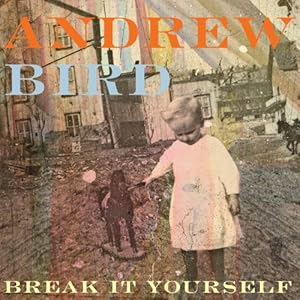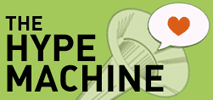Over the past four to six years there has been a steady rise in “Indie” music. This term is technically shorthand for any music released on an independent label. These smaller labels are numerous and almost never heard about unless they have a few stellar artists. Even then, their budgets seem like a raindrop in the deluge that is a major label’s finances. In this period of time I have steadily grown to enjoy these lesser-heard bands and artists. I’m never trying to be cooler than the mainstream, nor do I think I am above bands that get significant radio play. The music is better.
I enjoy the hunt for these bands and records. I enjoy the looks I get in Barnes & Noble when I ask about The Boy Least Likely To, Ghostface Killah, MF Doom, Neutral Milk Hotel, Band of Horses, and Tapes ‘N Tapes. No matter whom I ask, the response is always the same: “who/what? Could you repeat that? Is that the band or the album?” This is equal parts frustrating and amusing. It gives me a weird sense of pride that I’m not just another John or Jane looking for the latest U2 or Kelly Clarkson disc. This pride comes from the idea that, with indie music, I share a secret with a smaller society of music geek. And let’s face it, that’s what I am and huge Music Geek.
I enjoy the music more than the growing culture of Indie. It’s cool to be anti-mainstream in some regards. I’m mainstream in almost every facet of my life except for the music I enjoy the most. I’m content with this. I seek out new sounds that have been deemed, for one reason or another, “not ready for radio consumption.” The indie culture can have a better-than-thou attitude that doesn’t align with my morals. I would actually prefer to educate more people about this music I covet and track like a groupie. If I could teach every Coldplay-lover about The Go! Team I’d feel, in a way, like I was educating the masses. But on the flip side, they would no longer be “mine.” That’s my main problem: when indie goes popular.
The progression of the rare few indie bands that become mainstream generally follow the same path. The band starts out small, works their way up by touring tirelessly, word-of-mouth, and small pieces of press. At which point, the press builds and builds until they have a feature article in Rolling Stone or Q (the best UK music magazine). This string of events strips away the “indie” from the band and it becomes (now) alternative or even pop. More people knowing nets the band more exposure and more money. In most cases they get a new record deal and have to conform to what the label wants so their subsequent albums are never quite as good or original. Pop music is too polished. Too clean. Too produced. The raw energy and brash production makes me feel like they are actually making music. In pop they aren’t making music, they’re making something that is metaphorically washed, re-washed, tumbled dry, hung, ironed, dry-cleaned, and plastic wrapped. All for the (growing) unreasonable price of $15.
I’m convinced this steady rise and changes have all come about with the advent of the Internet. A band no longer has to rely on print media to get noticed. There is so much self-promotion that can occur on a scant budget. The innumerable resources now available for making, recording, producing, and distributing, et al. are all at one’s fingertips. The idea that music would be so easy to get via downloads (illegally or service provided) was unfathomable just a few years ago.
I deem the rise of indie as a progression in the course of pop music and culture. The vast array of new music that is being made and is readily available has been given more and more notice. The concept of “indie” is now a known commodity and bigger labels are starting to take notice whether by signing some of these lesser-heard bands or by buying their smaller label just to make some more money. Although some of my favorites might become more popular or mainstream over the next few years at least I can say that I heard them before anyone else.
Friday, March 31, 2006
Indie to Pop
Posted by
ethan a. zimman
at
10:22 AM
![]()
Subscribe to:
Post Comments (Atom)








No comments:
Post a Comment